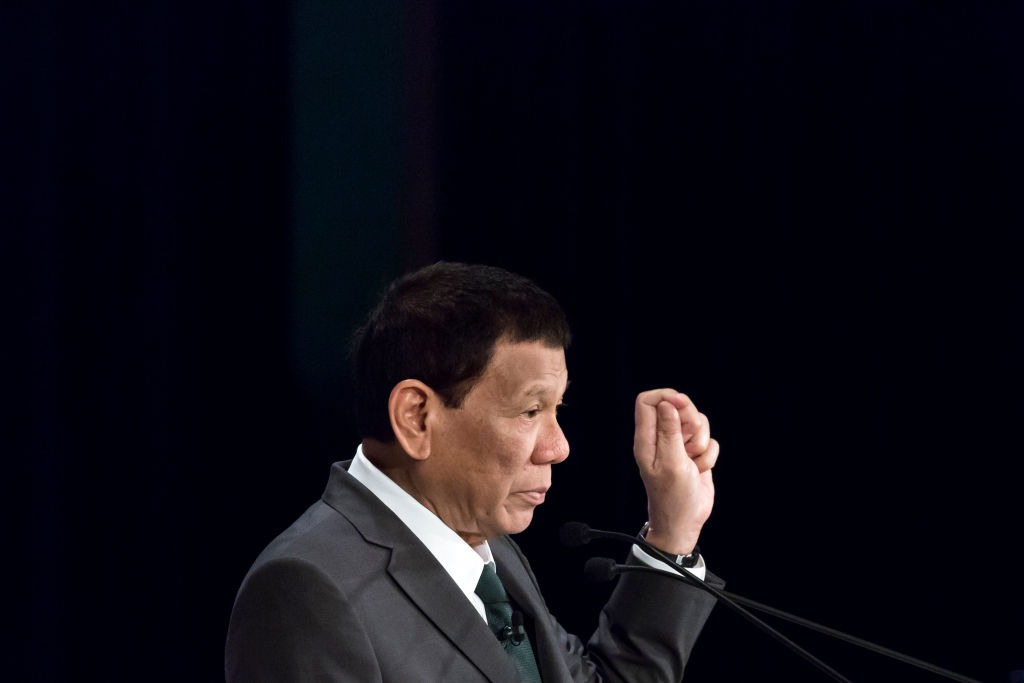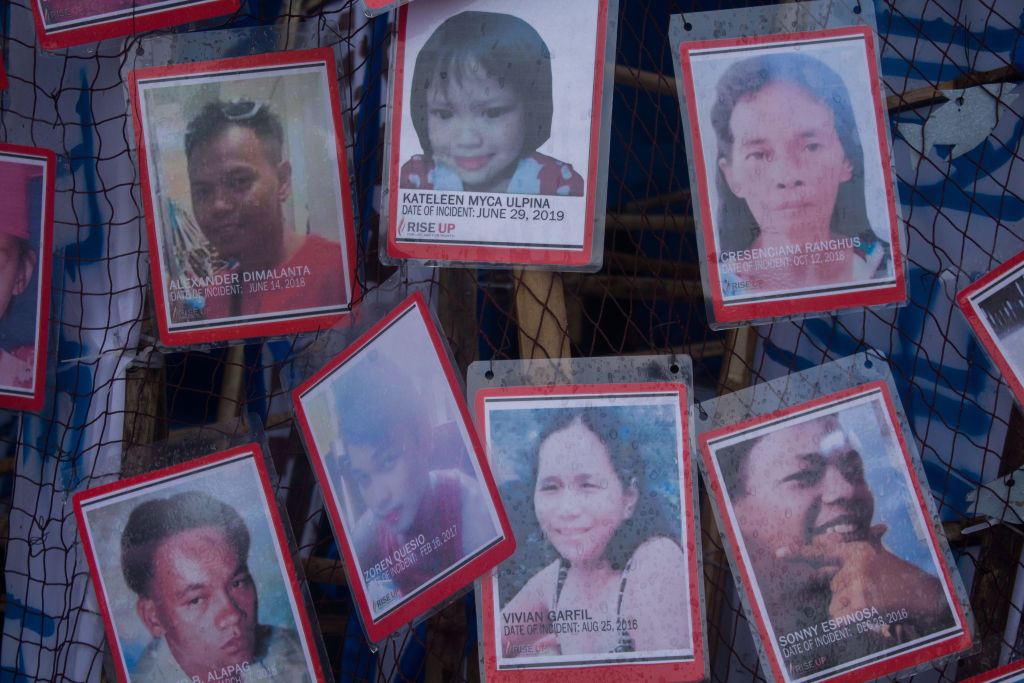
As President of the Philippines in March 2019, Rodrigo Duterte withdrew the country from being a party to the International Criminal Court. But it was too late to stop a probe the ICC had started in 2016 that was looking into Duterte’s “war on drugs,” a bloody anti-illegal-narcotics campaign defined by mass extrajudicial killings that left an estimated more than 6,000 people dead.
The investigation was initially put on hold at the request of the Philippines in November 2021, but in January 2023, the ICC announced that it was resuming its investigation, and in July, it rejected the country’s grounds for appeal.
After Duterte left office last year, his successor Ferdinand Marcos Jr. said, “the Philippines has no intention of rejoining the ICC.” But more recently, Marcos has admitted that he’s considering rejoining the court, as some lawmakers have requested that the new government cooperate with the investigation. Only one other state, Burundi in 2017, has withdrawn from the ICC, which has 123 members.
“Should we return under the fold of the ICC?” Marcos told reporters in Metro Manila Friday. “That’s again under study. So, we’ll just keep looking at it and see what our options are.”
More From TIME
But at the same time, Marcos has emphasized his continuing opposition to the ongoing ICC investigation into his predecessor.
“It’s not right for outsiders, foreigners to tell us who our police should investigate, who our police should arrest, who our police should imprison,” he told reporters in Tagalog. “That’s not right. Only Filipinos should do that. We have our police, anyway. We have our National Bureau of Investigation, anyway. We have our Justice Department. They can do that job.”
To date, however, no independent Philippine investigation has been made into Duterte’s drug war.
Read More: Leila de Lima Is Free but Not Finished Fighting: Exclusive Q&A With Duterte’s Fiercest Critic
Here’s what to know about the ICC investigation.
What is the ICC investigating?
Former ICC Prosecutor Fatou Bensouda first made note of the violence in Duterte’s drug war in October 2016. At the time, Bensouda flagged that the Philippines already reported some 3,000 extrajudicial killings of alleged drug users and pushers since the government began its anti-narcotics campaign in June.
Duterte founded his presidency on this “war on drugs” where he repeatedly threatened to “kill” those involved in the illegal drug trade. A similar campaign was also present during Duterte’s time as long-time mayor of the southern Philippine city of Davao, where he supposedly had a “death squad” carry out his orders.
Rights groups say Duterte’s provocative remarks enabled state forces to commit summary executions and extrajudicial killings. When he was President, he urged Filipino citizens to kill drug dealers, vowed to pardon policemen who kill criminals and civilians in their fight against crime, and ordered his then-customs bureau chief to shoot drug smugglers.
Government records say more than 6,000 have been killed in anti-drug operations since June 2016 until May 31, 2022, a month before Duterte’s presidential term ended, but human rights groups estimate that the death toll may be as high as 30,000.
Bensouda announced that the ICC will conduct a preliminary examination of these deaths in February 2018. The pre-trial investigation began five years later on Sept. 15, 2021—covering crimes allegedly committed in the country between Nov. 1, 2011 and March 16, 2019, ,the day before the country’s withdrawal from the ICC. This expands the scope of the investigation beyond the Duterte presidency’s “war on drugs” to also include killings during Duterte’s time as Davao city mayor. Judges ruled that the “crime against humanity of murder appears to have been committed” and that cases that come out of the probe will fall into the court’s jurisdiction.

What has Duterte himself said about the investigation?
From the get-go, Duterte has rejected the ICC investigation. Weeks after the statement from Bensouda, he publicly attacked the ICC, calling it “useless,” and threatened to withdraw the country from the court.
In March 2018, a month after the ICC launched a preliminary inquiry into the Philippines’ drug war, in a 15-page-statement, Duterte expressed outrage and unilaterally announced the country’s withdrawal from the court’s foundational treaty the Rome Statute, because of “baseless, unprecedented and outrageous attacks” from U.N. officials and the ICC’s actions which were “in violation of due process and the presumption of innocence expressly guaranteed by the Philippine Constitution.”
The Philippines ceased to be a member of the court a year later on March 17, 2019, but the ICC has since ruled that prosecutors may still investigate the alleged “crimes against humanity of murder” in the country, because they occurred when the Philippines was still a party to the statute.
“You do not scare me that you will jail me in the International Criminal Court. I will never allow myself to answer these whites,” Duterte said in December 2019. “I will never, never, never answer any question coming from you. It’s bullshit to me. I am only responsible to the Filipino. Filipinos will judge… And if you hang me for all what I did, go ahead. It will be my pleasure.”
What could happen next?
ICC investigations may or may not lead to trials, according to an analysis by Human Rights Watch. If, during investigations, the prosecutor finds sufficient evidence to prosecute, they must identify a suspect and request for either an arrest warrant or a summons to appear. A group of pretrial judges ultimately decides whether a case should be brought to trial.
The ICC, however, has limited powers, since its function is to complement countries’ judiciary systems. It prosecutes only in the absence of genuine, independent legal proceedings, and it neither has its own police force or independent enforcement mechanisms. The level of success for investigation and prosecution depends on how cooperative participant countries are.
Arrests, in particular, remain difficult. ICC judges have issued 40 arrest warrants since the court’s inception in 2002, but 15 still remain at large. Russian President Vladimir Putin, for example, has had an ICC-issued arrest warrant issued against him since March, but analysts believe the chances of apprehending him are slim to none.
More Must-Reads from TIME
- Donald Trump Is TIME's 2024 Person of the Year
- Why We Chose Trump as Person of the Year
- Is Intermittent Fasting Good or Bad for You?
- The 100 Must-Read Books of 2024
- The 20 Best Christmas TV Episodes
- Column: If Optimism Feels Ridiculous Now, Try Hope
- The Future of Climate Action Is Trade Policy
- Merle Bombardieri Is Helping People Make the Baby Decision
Contact us at letters@time.com